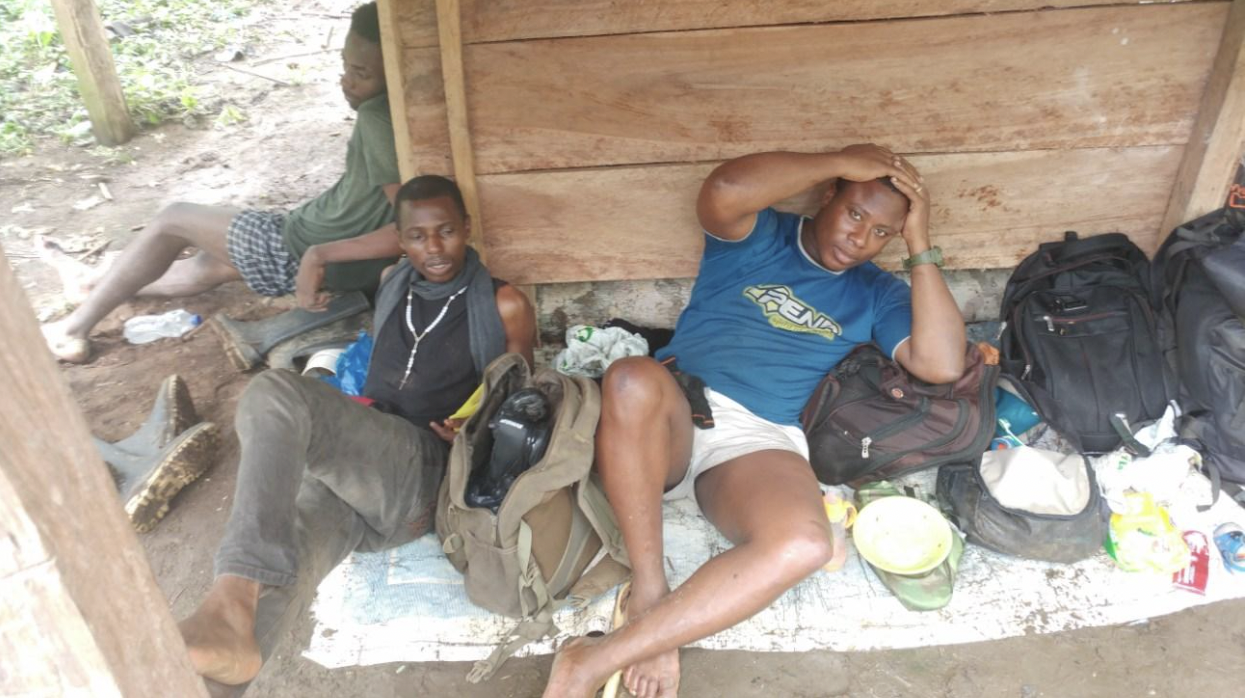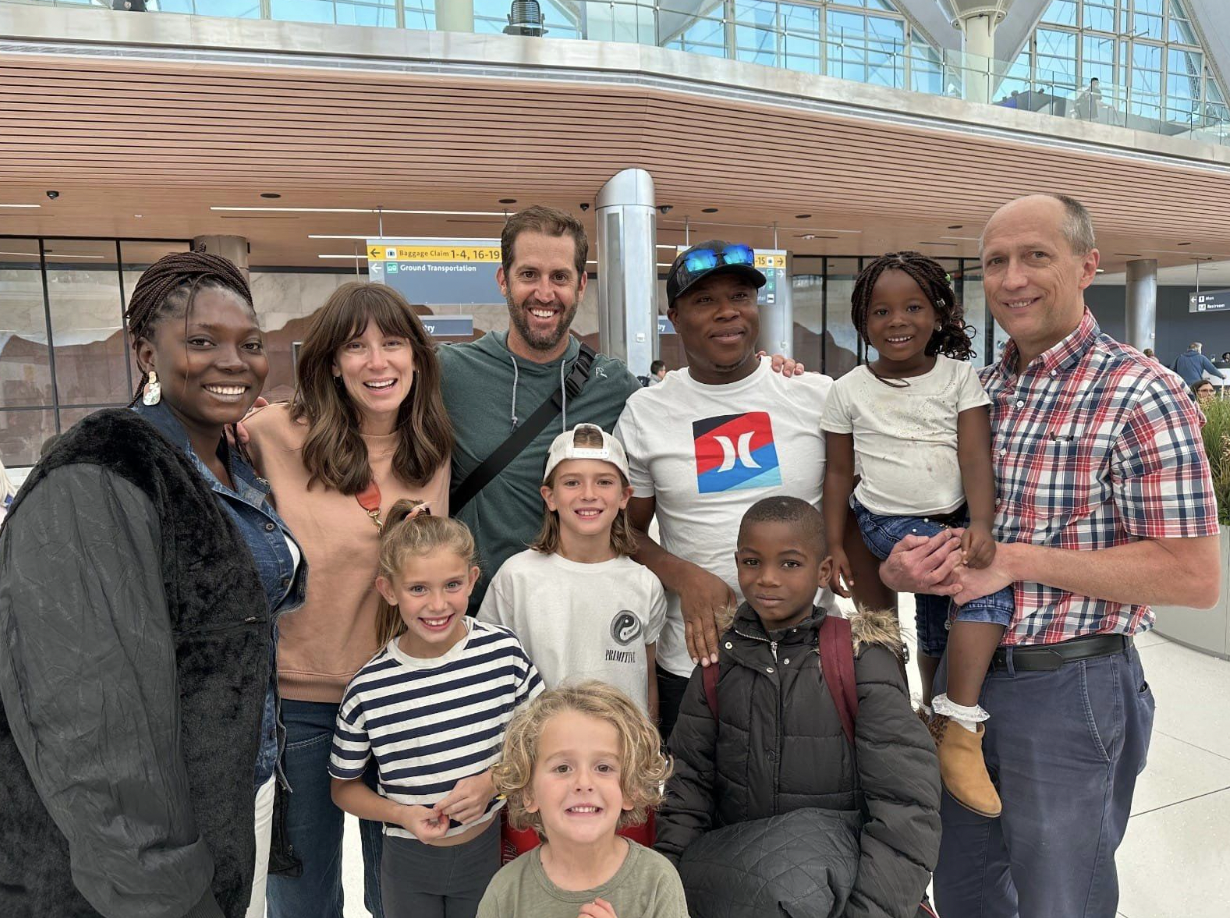“I just had to run away from my life,” Selky winces, remembering the impossible decision he made four years ago to leave his wife and children behind in Cameroon to come to the United States. The journey took months, and he could never have anticipated that once he arrived, he would be imprisoned for eight months before finally being freed.
Now, settled with his wife and two children in Denver, Selky Azaah looks back at his time in the detention center with positivity as he looks to help the people that are held in immigrant prisons today.
Selky is from Bamenda in the northwestern English-speaking part of Cameroon, where he lived with his wife Claudia and his two children until 2018.
Conflict in Cameroon
While Cameroon is home to more than 200 languages, French and English are the official languages, dividing the population into Anglophone and Francophone Cameroonians. Originating from colonial times, the tensions of these underlying ethnic divisions heightened when English-speaking Cameroonians, or the Anglophone citizens, began to protest the discriminatory policies they faced from the Francophone government. That was in 2017. Since then, immense violence has erupted in the country, killing over 6,000 people and displacing 765,000 people into various regions in Africa. Some experts have asserted that attacks by both government security forces and Anglophone separatists may amount to crimes against humanity.
As an English-speaking Cameroonian, Selky was forced to flee from the violence and discrimination into neighboring Nigeria, before starting his journey to the United States. From Nigeria, he found a flight, visa-free, to Ecuador. Once in South America, he began the grueling and dangerous journey to the United States.

While the journey was brutal, Selky could never have imagined what was waiting for him once he entered the United States.
The American immigrant prison system
“It was kind of like an underground prison,” Selky added, speaking of the San Ysidro Detention Center in Southern California. After adding his name to a list at the Mexican-American border, Selky was admitted into the United States. While awaiting judgment on his asylee status, he was transported to an immigrant prison.
“I regretted ever coming to the United States,” Selky admitted. “I was running to somewhere where I thought they would help me, but I found myself in jail. And I was like how on earth did I find myself here?”
The conditions were unbearable. “We had to take turns sleeping on the ground,” Selky describes how 80 men were confined to a room with a maximum capacity of 27.
After eight days in San Ysidro, Selky was sent to the Aurora Detention Center in Colorado, run for the U.S. Immigration and Customs Enforcement Agency, or ICE, by a private prison organization called Geo Group Inc. Geo Group is one of the largest private prison companies in the U.S., managing over 100 state and federal prisons and 18 ICE immigration prisons, also called detention centers. According to TRAC immigration, as of February 26, 2023, there were 27,010 people in detention centers around the United States.
Life in the detention center in Aurora proved difficult for Selky. During the first few days of his time there, he received news that his grandmother and two cousins had died. “One of my cousins was shot in front of his mom and dad because of me,” Selky explained.
With three different family members dying, Selky’s mental health was deteriorating. One day, he was sitting in his cell alone, when he was told he had a visitor. “And I thought, ‘Who could be visiting me? Who knows me here,’” Selky said, chuckling to himself.
An unlikely friendship
The visitors were volunteers from Casa de Paz, a Denver-based organization that works with immigrants both inside the detention centers through their visitation program and later when they are released. As lead volunteer for the Casa, Greg Mortimer met Selky through the visitation program.

“I think it was just meant for me to meet Greg,” Selky grinned, thinking about that first visit. Greg Mortimer, a Denver native, remembers chatting with Selky and soon enough Greg and his wife were visiting Selky regularly. They told stories, they prayed together, and they “just laughed.”
One day, Greg asked Selky about his asylum case and Selky explained that he did not have a lawyer. Greg worked with friends to raise money to hire an attorney, and after another 4 months, Selky’s asylum status was approved and he was free. “I mean I couldn’t believe I was a free man, but then I was a free man,” said Selky, grinning widely.
The creation of the CIJF
The fundraising effort to help Selky was the beginning of the Colorado Immigrant Justice Fund (CIJF), which raises money for legal assistance for people seeking refuge and asylum across the country. He was their first client, and today, Selky Azaah is on the board of the CIJF. Furthermore, this was also the beginning of Greg Mortimer’s continuing advocacy for people in immigrant prisons.
Years later, reunited with his family, Selky looks to tell his story so people can learn about the immigration system from someone who has been through it.










